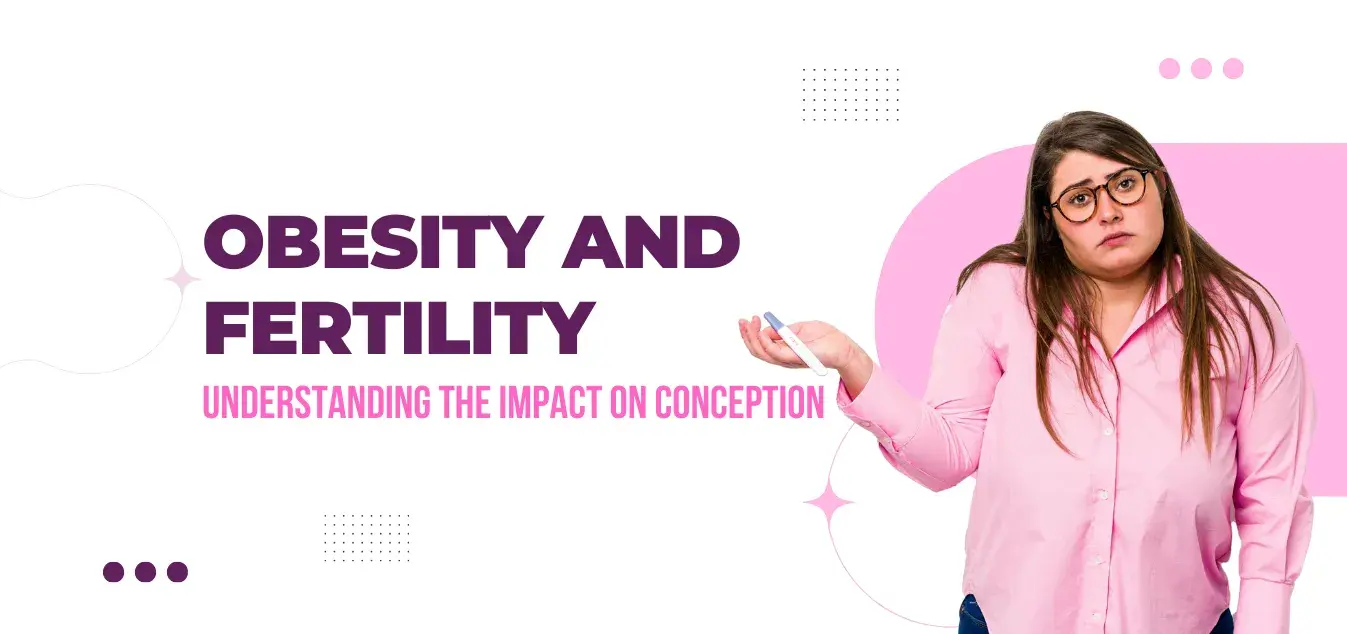Fertility is influenced by several factors, including lifestyle, genetics, and overall health. One critical yet often overlooked factor is body weight. Obesity can significantly impact both male and female fertility, making it harder to conceive naturally. Understanding the link between obesity and reproductive health can help individuals take proactive steps toward improving their chances of conception.
Women with excess body weight often experience hormonal imbalances that disrupt the ovulation process. Some key ways obesity impacts female fertility include:
1. Irregular Menstrual Cycles
Obesity can cause insulin resistance, leading to increased production of androgens (male hormones), which interfere with normal ovulation. This can result in irregular or absent periods, making conception challenging.
2. Polycystic Ovary Syndrome (PCOS)
Many obese women suffer from PCOS, a common condition that causes irregular ovulation, cyst formation in the ovaries, and elevated androgen levels. PCOS is one of the leading causes of infertility in women.
3. Poor Egg Quality
Excess weight has been linked to reduced egg quality, affecting
embryo development and implantation success. Women with obesity often face lower IVF success rates due to compromised egg health.
4. Increased Risk of Miscarriage
Studies show that women with higher BMI have an increased risk of miscarriage, even after successful conception. This is due to inflammation, hormonal imbalances, and poor endometrial receptivity, which affect embryo implantation.
How Obesity Affects Male Fertility
Men with obesity are also at risk of fertility complications, as weight gain affects sperm health and hormone production. Some major concerns include:
1. Reduced Sperm Quality
Obesity can lead to lower sperm count,
poor sperm motility, and increased DNA fragmentation, making it harder for sperm to fertilize an egg.
2. Hormonal Imbalances
Excess fat tissue increases estrogen levels in men, reducing testosterone levels. This imbalance negatively impacts sperm production and overall reproductive health.
3. Erectile Dysfunction
Obesity is associated with poor circulation and vascular health, leading to difficulties in maintaining an erection, which further hinders conception.
How Weight Loss Can Improve Fertility
Losing weight, even by 5-10% of body weight, can significantly improve fertility outcomes. Here are some ways weight loss can boost reproductive health:
- Regulating menstrual cycles and improving ovulation
- Enhancing egg and sperm quality
- Increasing IVF success rates
- Lowering the risk of pregnancy complications
Tips for Healthy Weight Management
For individuals struggling with obesity and fertility issues, adopting a healthy lifestyle can make a huge difference:
Balanced Diet – Focus on whole foods, lean proteins, healthy fats, and fiber-rich carbohydrates to improve metabolism and hormone balance.
Regular Exercise – Engage in moderate physical activity like walking, yoga, or strength training to maintain a healthy weight.
Medical Guidance – Work with a
fertility specialist and nutritionist for personalized weight management strategies.
Manage Stress – High-stress levels can affect fertility. Practice relaxation techniques like meditation and deep breathing.
Conclusion
Obesity plays a significant role in reproductive health and can make conception challenging for both men and women. However, weight management through a healthy diet, exercise, and medical intervention can enhance fertility and increase the chances of a successful pregnancy. If you’re struggling with weight-related fertility issues,
consult a fertility expert to explore the best strategies tailored to your needs.
